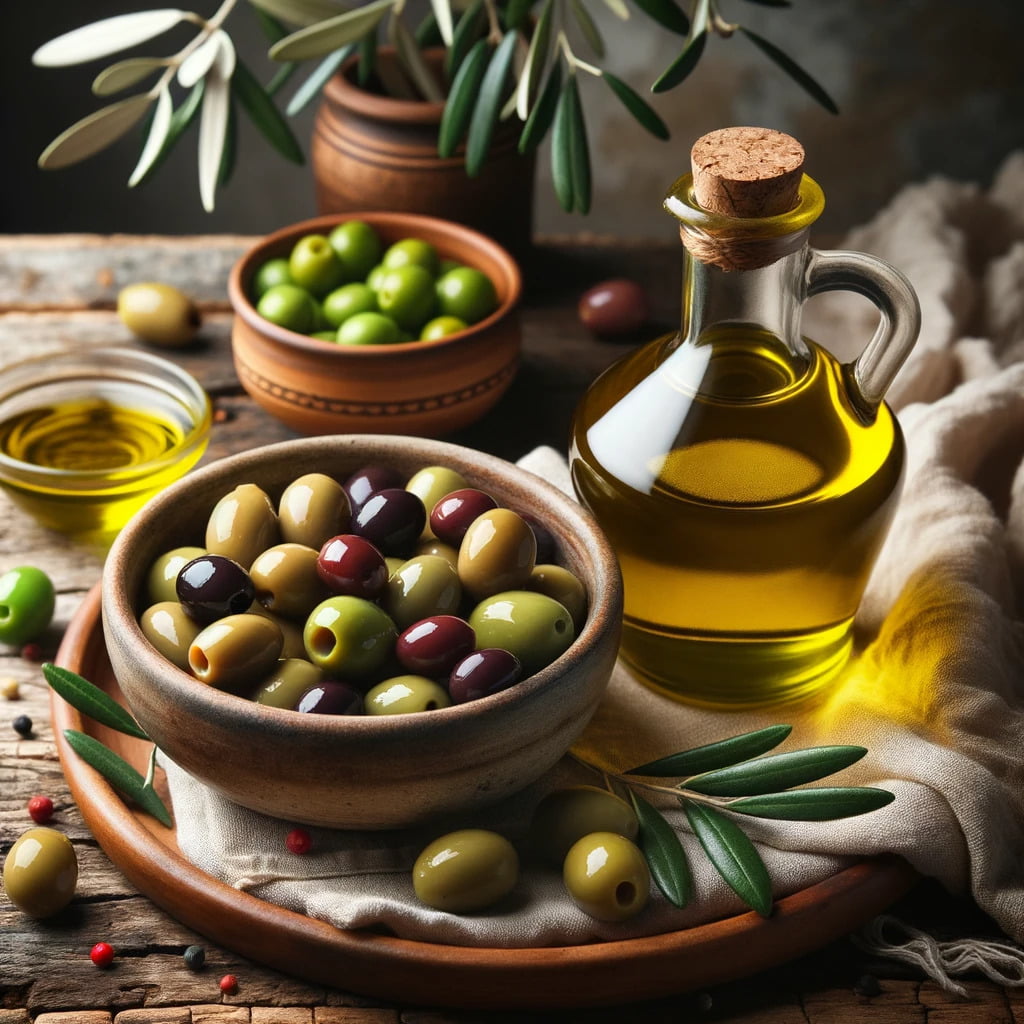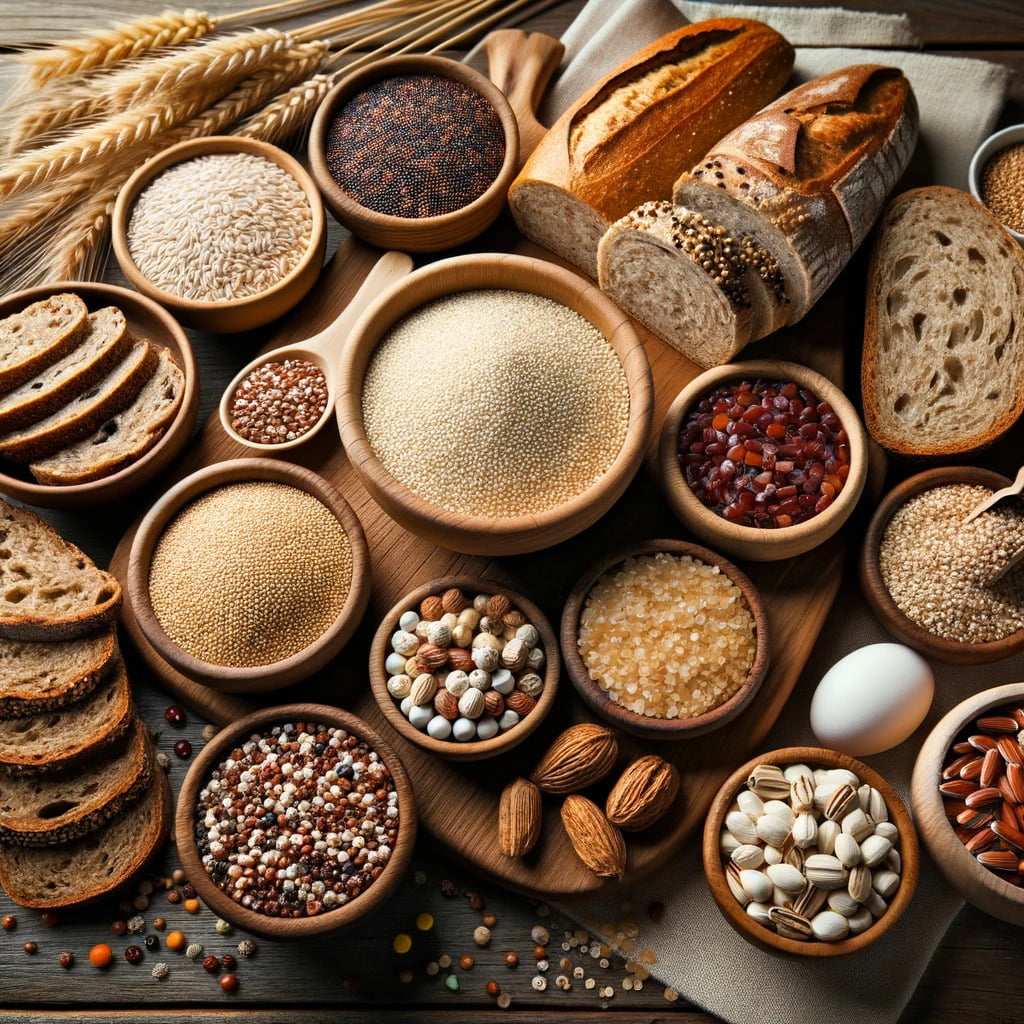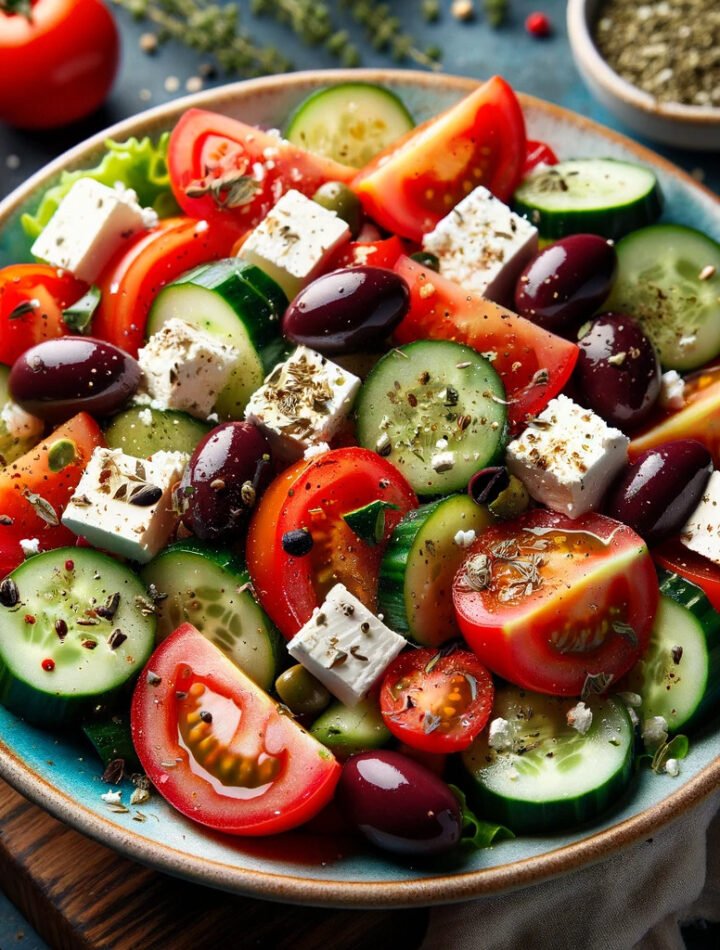The Mediterranean Diet, renowned for its health benefits and flavorful dishes, has been embraced by health enthusiasts worldwide. From heart health to weight management, its advantages are numerous. But what makes it so special? Let’s embark on a culinary journey to discover the 7 Best Foods to Eat from The Mediterranean Diet.
Olives and Olive Oil: Liquid Gold

Olives, whether enjoyed whole or as olive oil, are a staple in Mediterranean cuisine. This “liquid gold” is rich in monounsaturated fats, which play a pivotal role in reducing bad cholesterol levels. Moreover, the antioxidants present contribute to fighting inflammation and offering cardiovascular benefits.
Fish: The Heart’s Best Friend
Fish, especially fatty varieties like salmon, mackerel, and sardines, are loaded with omega-3 fatty acids. Regular consumption is linked to decreased risks of heart diseases, improved brain health, and even mood regulation. The Mediterranean coast’s bounty offers fish in abundance, making it a diet essential.
Legumes: Nature’s Protein Pack
Beans, lentils, and chickpeas are not just protein-rich but also a good source of fiber, vitamins, and minerals. They are versatile and can be incorporated into soups, salads, and even desserts. By aiding digestion and providing sustained energy, legumes are a perfect fit for the Mediterranean diet.
Whole Grains: Energy Sustained
Switching to whole grains from refined grains ensures you receive more nutrients and fiber. Foods like quinoa, barley, and whole grain bread and pasta not only keep you full but also help in regulating blood sugar levels.

Nuts and Seeds: Tiny Nutritional Powerhouses
Almonds, walnuts, and flaxseeds offer an array of benefits. From boosting brain health to providing essential fats, they are nutritional gems. They’re not only delicious snacks but also great additions to salads, yogurts, and baked goods.
Fruits and Vegetables: Nature’s Candy
The Mediterranean diet emphasizes the importance of consuming a rainbow of fruits and vegetables. Rich in essential vitamins, minerals, and fiber, they play a role in reducing the risk of chronic diseases. From tomatoes and spinach to citrus fruits, they add color and flavor to every dish.
Dairy: Fermented Goodness
Yogurt and cheese, especially those from goat and sheep, are commonly consumed in the Mediterranean region. They are an excellent source of calcium and probiotics, promoting bone health and aiding digestion.
FAQs about The Mediterranean Diet
- What makes the Mediterranean diet unique?
The Mediterranean diet is not just about food but also embodies a way of life. It emphasizes fresh produce, healthy fats, and lean proteins, coupled with physical activity and communal eating. - Is red wine allowed in the Mediterranean diet?
Yes, red wine is consumed in moderation. It’s rich in antioxidants, which offer various health benefits. However, excessive consumption can lead to health issues. - How does the Mediterranean diet benefit heart health?
The diet is low in saturated fats and high in monounsaturated fats and dietary fiber. These factors, combined with its focus on lean proteins and antioxidants, contribute to heart health. - Can the Mediterranean diet aid weight loss?
Yes, by emphasizing whole foods, healthy fats, and lean proteins, it helps in weight management. The high fiber content also ensures satiety. - Is the Mediterranean diet suitable for vegetarians?
Absolutely. The diet’s emphasis on plant-based foods, legumes, and grains makes it adaptable for vegetarians. - How does one start with the Mediterranean diet?
Start by incorporating more fruits, vegetables, whole grains, and healthy fats into your meals. Gradually make substitutions, like choosing olive oil over butter or fish over red meat.
Conclusion
The 7 Best Foods to Eat from The Mediterranean Diet offer a harmonious blend of taste and nutrition. By incorporating these foods into our daily regimen, we not only satiate our taste buds but also invest in our long-term health. Embracing the Mediterranean lifestyle goes beyond diet; it’s about celebrating life, food, and togetherness.





